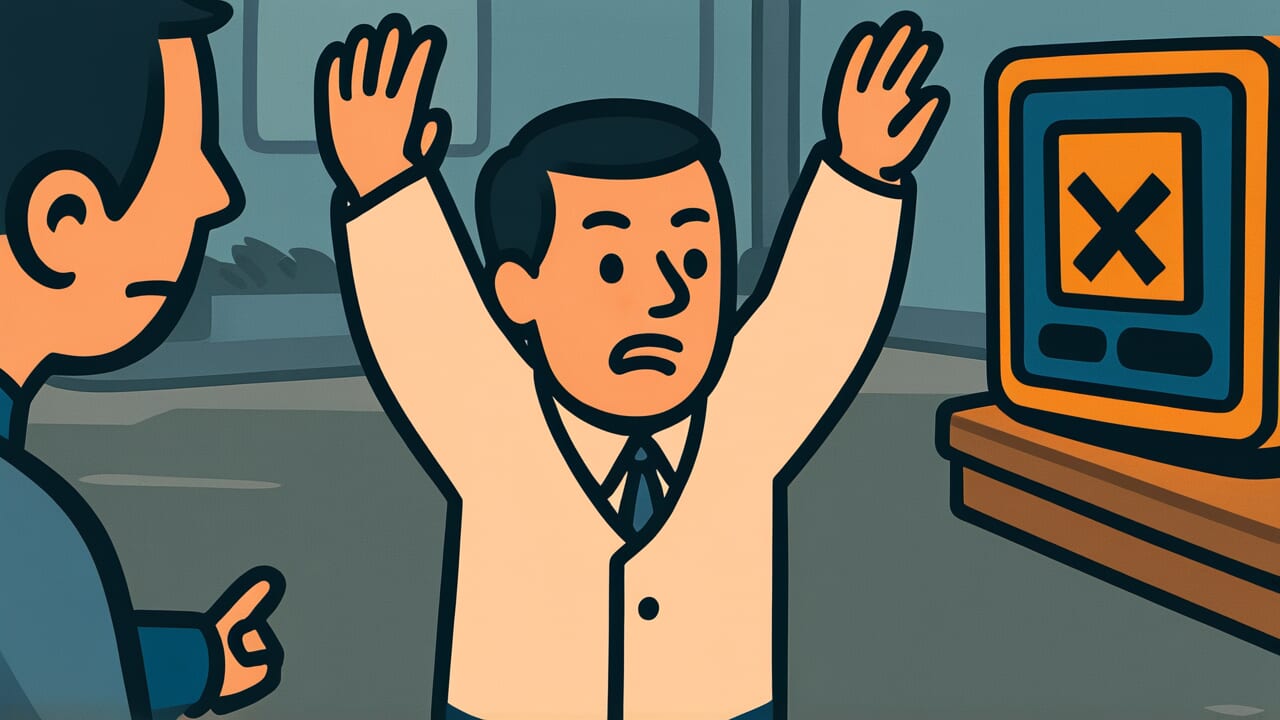How to Read “Bad deeds come back to you”
Akuji mi ni kaeru
Meaning of “Bad deeds come back to you”
“Bad deeds come back to you” means that when you do something bad, bad results will come back to you. If you hurt people, cheat, or lie, you will face the consequences later.
People use this proverb when they see someone doing something wrong. They also use it when they feel tempted to do something bad themselves.
Sometimes people say it when a person who did bad things faces trouble. They say, “See? Bad deeds come back to you.”
This saying is still true today. For example, people who bully others online often damage their own reputation. People who cheat to make money often lose even more money later.
If you do bad things for quick benefits, you will pay the price somewhere down the road.
Origin and Etymology
No one knows exactly when people first said “Bad deeds come back to you.” But it likely comes from Buddhist ideas about cause and effect.
Let’s look at the words. “Akuji” means bad deeds. “Mi ni kaeru” means to return to yourself.
The word “return” is interesting. It’s like throwing a ball that bounces back to you. Your bad actions come back naturally, like a law of nature.
Buddhism teaches about “cause and effect.” Good actions bring good results. Bad actions bring bad results. This idea was very common in Japan, even in ancient times.
Stories from the Heian period (794-1185) show this teaching. It became part of how people thought about right and wrong.
“Bad deeds come back to you” made this Buddhist idea easier to understand. It became everyday wisdom that parents taught their children for generations.
Usage Examples
- That person betrayed many people. Now nobody trusts him anymore. Bad deeds come back to you.
- The boss who cheated to get promoted just got fired because his workers reported him. Bad deeds come back to you.
Universal Wisdom
This proverb has lasted so long because it reveals a deep truth. The world is surprisingly small. People are connected in ways we don’t expect.
People who do bad things often think, “Nobody is watching” or “I won’t get caught.” But human society is like a web of threads.
When you pull one thread, other parts move too. The person you hurt has friends and family. They all have their own connections. The effects of bad deeds spread quietly but surely.
There’s another deep truth here. Doing bad things changes your own heart. Once you do something wrong, you become suspicious of everyone.
You think, “If I did it, others will do it too.” You stop trusting people. You become isolated and lose relationships. You move away from happiness.
This proverb isn’t just about morals. It shows how human society naturally punishes people who do wrong. Our ancestors understood how society really works.
When AI Hears This
Human society is a “small world network.” On average, you can reach anyone through just six people. This means the person you hurt probably knows someone who knows your friends.
This structure makes bad deeds come back to you. It’s not magic—it’s math.
In network theory, information spreads through many paths, not just one. When you cheat someone, that information might not come back directly.
It might travel through the victim’s coworker, their family member, or a stranger who overheard the story. It could reach your boss, business partners, or girlfriend through unexpected routes.
Some people are “hubs”—they know many people. When information reaches them, it spreads exponentially fast. Your bad reputation can spread incredibly quickly.
There’s also a feedback loop. When your bad reputation spreads, people avoid you. You have fewer helpers and fewer choices.
When you’re cornered, you might do more bad things. This makes the loop speed up and your reputation gets worse faster.
The denser the network, the stronger this effect. Bad deeds coming back isn’t about morals. It’s a mathematical certainty created by network structure.
Lessons for Today
“Bad deeds come back to you” teaches that being honest is the smartest way to live.
Today, you might see people who cheat and seem to win. Some people succeed through dishonest methods. They step on others to climb higher.
When you see this, you might think honest people are foolish.
But look at the long term. Who are the truly happy people? Who do others really trust? Who gets help when they’re in trouble? It’s the people who lived honestly.
Benefits gained through bad deeds are fragile, like castles made of sand. They will eventually collapse.
This proverb isn’t meant to scare you. Instead, it guarantees the value of living honestly. It’s your ally.
If you live honestly and treat people well, good results will come back to you. It might take time, but it will happen.
Our ancestors are telling us this is like a law of nature.



Comments